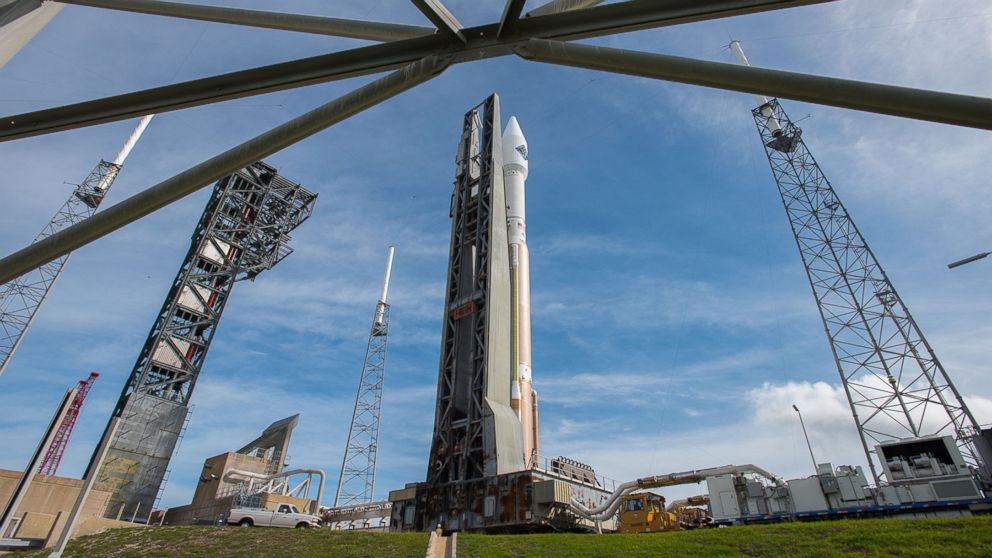Cygnus Launch Delayed to International Space Station
Orbital ATK waiting to make launch following last year's rocket explosion.

— -- Poor weather prompted NASA officials to make a last minute decision on the launch pad to postpone the launch of the Cygnus spacecraft to the International Space Station. The next available window will be Friday at 5:33 pm ET.
The planned launch comes after NASA suffered two catastrophic losses in less than a year of cargo vessels bound for the International Space Station.
The company Orbital ATK, the owner of Cygnus, had been sidelined following the Antares rocket explosion last year, while SpaceX, the other company contracted by NASA to resupply the space station, lost its Dragon capsule when it burst into flames just 139 seconds after its launch over Cape Canaveral.
It will be the first flight of the upgraded Cygnus, which can carry 7,000 pounds of cargo -- 25 percent more than its predecessor -- making the vehicle even more appealing to NASA, which relies on its resupply missions to stock the space station with food, clothes and science experiments.
If all goes according to plan, in a few days, Commander Scott Kelly, who is currently spending one year in space, can look forward to unloading more food supplies, clothes and plenty of science experiments -- the results of which can help benefit future missions.
When Cygnus reaches the space station, it will be pulled in by the station's robotic arm and docked for unloading.
One experiment -- called The Packed Bed Reactor Experiment-- will examine how liquids and gases behave when flowing through the same column. The results could help inform scientists on how to build lighter and more energy efficient life support systems for the space station and future missions into deep space.
Two satellites will also be on board Cygnus and will be deployed from ISS to demonstrate how swarms of spacecraft will be able to exchange information with each other as well as determine who should speak with ground control at a certain time during a mission, according to NASA.
Cygnus will also help take out the trash -- astronauts will fill up the spacecraft with unneeded items before releasing it to burn up in Earth's atmosphere.




